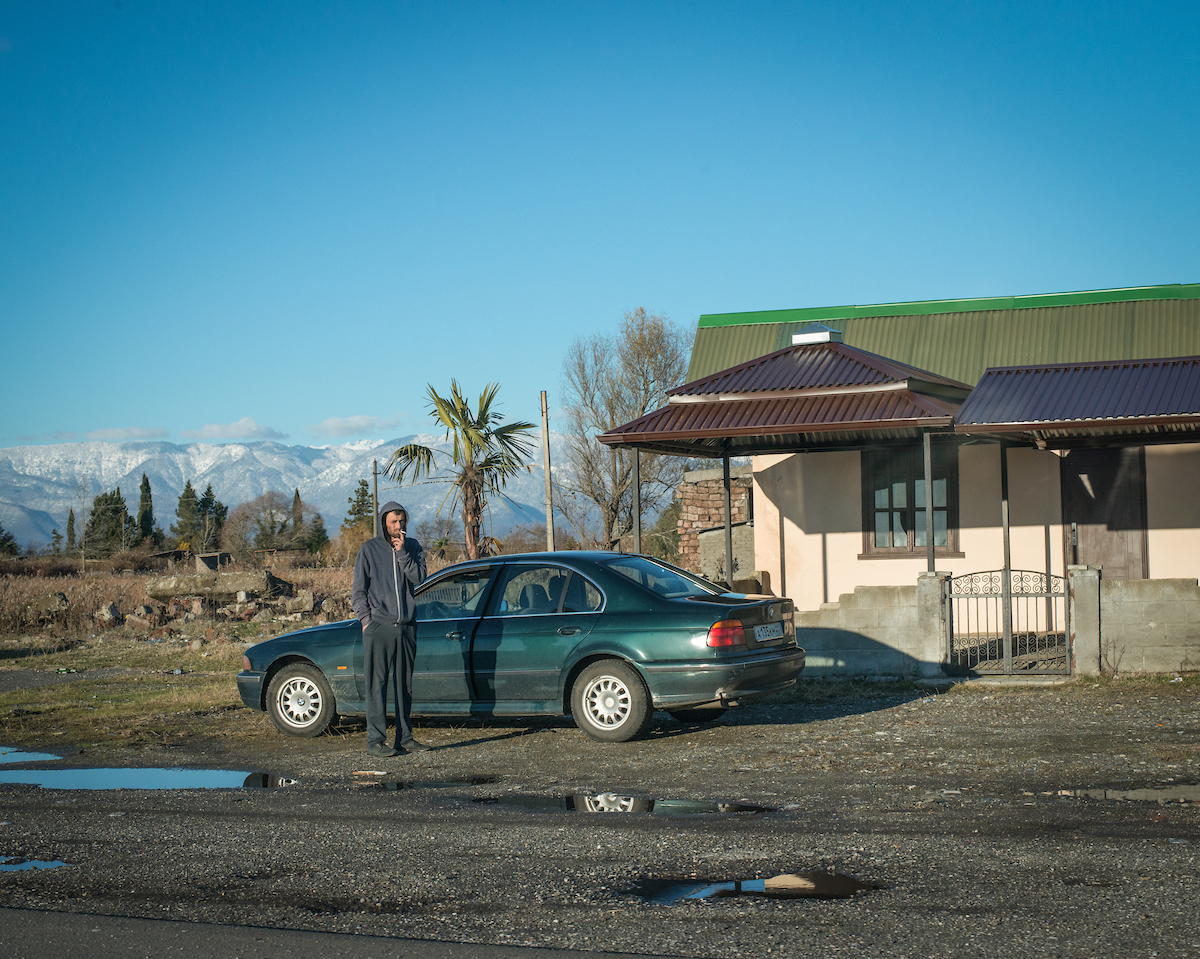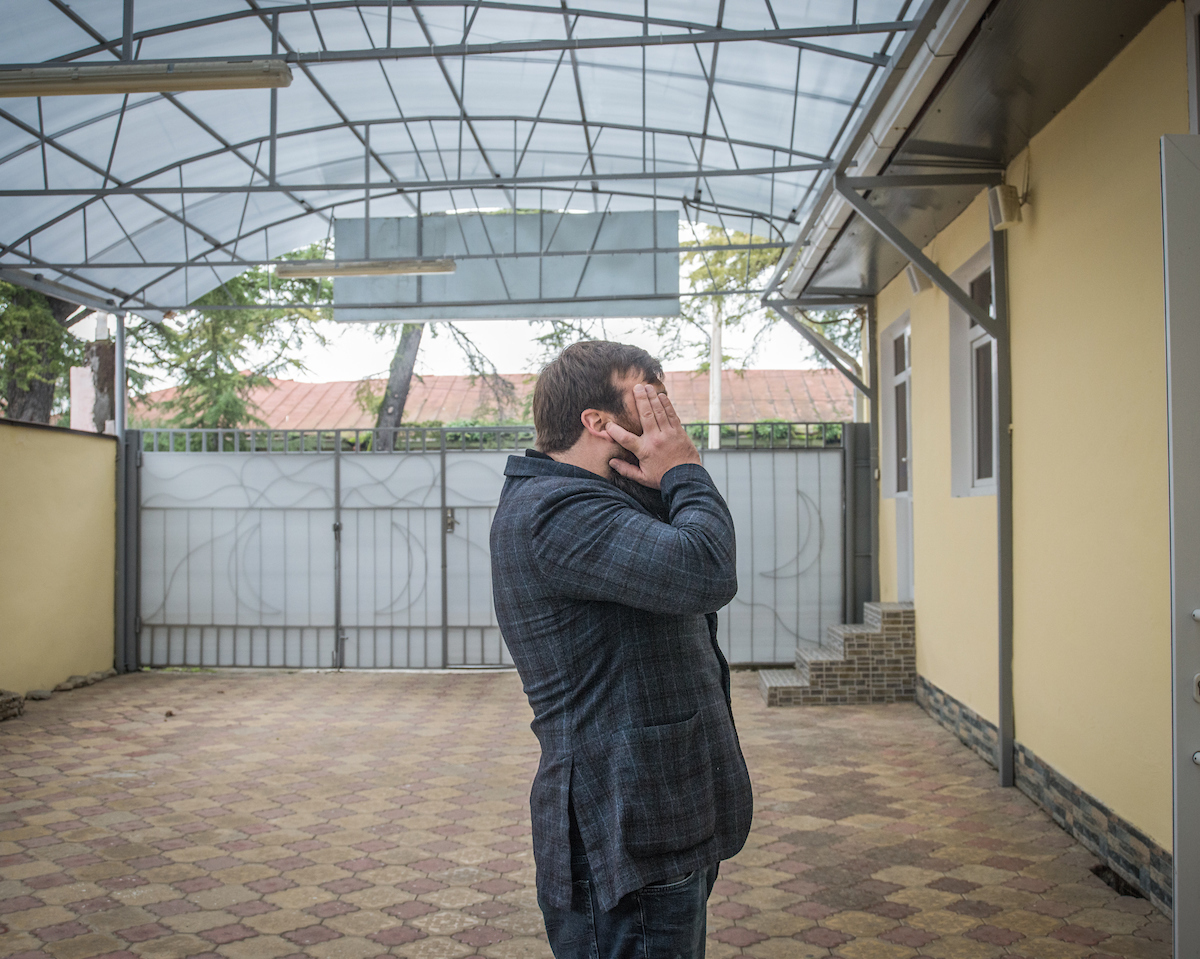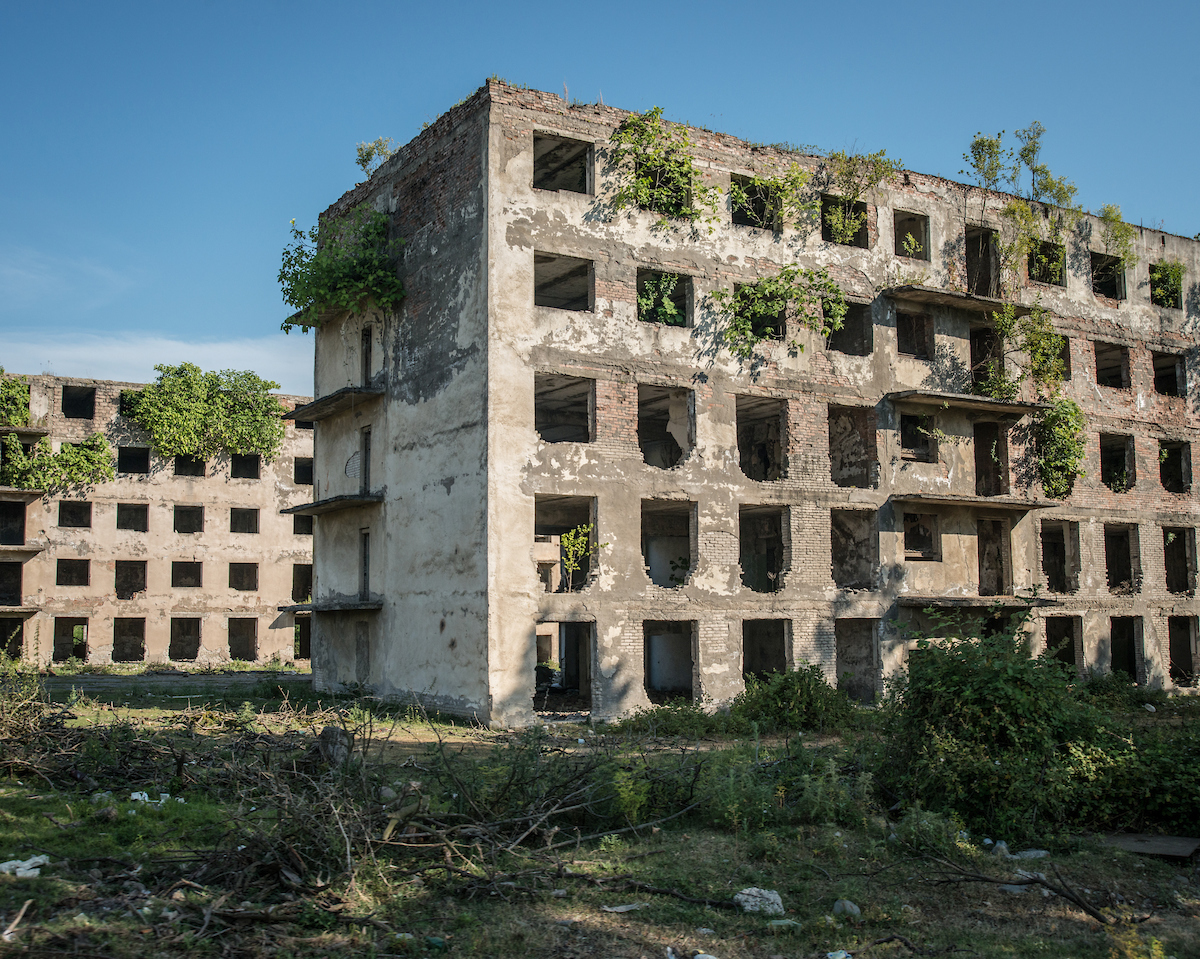- Activities
MAPS is a collective effort proposing new ways and approaches of storytelling to address the world's changing environment and societies.
MORE- Works
- Cultural
- Education
- Collective projects
- Members
MAPS brings together various dedicated professionals who want to start a new adventure and learn from each other in the process.
MORE- Photographers
- Creatives
- Contributors
- Foundation
Series
Abkhazia, Syrians coming back home
Justyna Mielnikiewicz
The Russian conquest of Caucasus was completed by the second half of the 19th century. Local elites who converted to Islam were forced to flee across the sea to Ottoman Empire. Strong Russification policy replaced their memory. Later Soviet Union drew its own borders – covering up what was left from past arrangements even further.
In 1862, the proposal to deport the Circassians was ratified by the Russian government, and a flood of refugee movements began as Russian troops advanced. Majority went on boats, marched to the ports along the Black Sea by Russian forces. Hundreds perished on their way crossing the sea. That event is still commemorated in diasporas as Circassian Genocide and generations pass down personal stories of that mortal exodus. I have met young Turkish man of Abkhaz origins who claimed his grandfather family would not eat fish – because so many of people died at the sea.
Abkhaz were one of those expelled Caucasus ethnic group which are better known on exile under common name of Circassians (or with endonym name as Adyghe). Abkhaz diaspora is currently estimated to measure at least twice the number of Abkhaz that reside in modern day de-facto Abkhazia which in 1993 war broke away from Georgia. The largest part of the diaspora lives in Turkey, with smaller groups in Syria and Jordan. Today, ethnic Abkhaz make up just over half of the region’s self-declared population of 240,705 – after about 250 000 ethnic Georgians and mixed families fled at the end of 1993 war. Russia over the years economically supported Abkhazia and unilateraly recognized its independence.
Georgian control over a place becomes only de jure – on paper while Abkhaz set on trying to build an ethno-state, cautiously balancing between declared independence and de-facto Russian dependence.
To counter-balance both Russian and Georgian influence Abkhaz de-facto Ministry of Foreign Affair created a Repatriation Committee to bring ethnic Abkhaz scattered around Turkey and the Middle East to their ancestors homeland. Individual people of Abkhaz decent kept resettling to Abkhazia since the war with Georgia and declared De-Facto Independence in 1993.
In an effort to further foster both numbers of Abkhaz and their national identity focus was increased to bring back even more Abkhaz from diaspora. With an on-going war in Syria 2014 marked the biggest wave of repatriation with about 500 Syrians returning from a long exile. This time ironically it was Russian planes which brought them from the war zone to safety.
Exiles fairy memories of country with green hills placed between the foot of Caucasus mountains and the blue sea were of no help in adjusting to live in a country which has changed over the last 150 years.
Abkhazia struggles with economical problems being unrecognized. Additionally Russian language became lingua franca so knowledge of Abkhaz and Arabic are not a big help when looking for little bit of available work. While there is a functioning mosque in capitol Sukhumi, the country became mostly Orthodox Christian. The Mula in the Mosque is a local Abkhazian and when he is asked if Abkhazia is Christian or Muslim, he replies frankly that it is both, yet most Muslim Abkhaz live in diaspora today.
Syrians in Abkhazia receive housing and often better assistance that many locals, yet language is the main barrier and they find it difficult to assimilate. For most part recent Abkhaz war with Georgians is also not their own war. Like for locals Syrian war is far less important that the memory of their own they had with Georgia.
Many Syrian Abkhaz come originally from a demilitarized zone between Syria and Israel in the Golan Heights, a territory Israel captured in 1967. Their ancestors settled there because the landscape reminded them about the Caucasus Mountains.
In May 2017 I met father and son Mohammed and Mazen Abaza, who were refugees from Damascus. They seat in their soviet era flat in Sukhumi. Young Mazen was chain smoking cigarettes while listening to his father Mohammed telling stories of past life with his eyes set far away on Damascus.
Their grandfather fled Abkhazia and settled in Golan Heights like most Caucasians did in the 19th century. Then again Mohammed had to flee after Israel took control of the Golan Hills and settled in Damascus. Yet again another war forced him to flee. Not sure why not to the West like thousands of Syrians did but he brought his family back to Abkhazia.
In Damascus they had a small grocery shop, the father was translator and talented amateur poet and artist. In Sukhumi his son struggled to find a job – not knowing the language he found work at the brick factory. He seemed depressed yet was set to learn Russian and find a Russian wife. They live in a community of about 400 Syrians on the Sukhumi outskirts by Dranda – which is half Orthodox monastery and half Prison.
I have just completed documenting that peculiar, fragile community on their quest to find peace in a place where after 150 years of exile they are determined to make their home again.
It is a story about memory and national identity. It documents after shock waves of empires crumbling – Russian and Ottoman and still affecting modern geopolitics and individual lives from Syria to Caucasus Mountains.






















































































